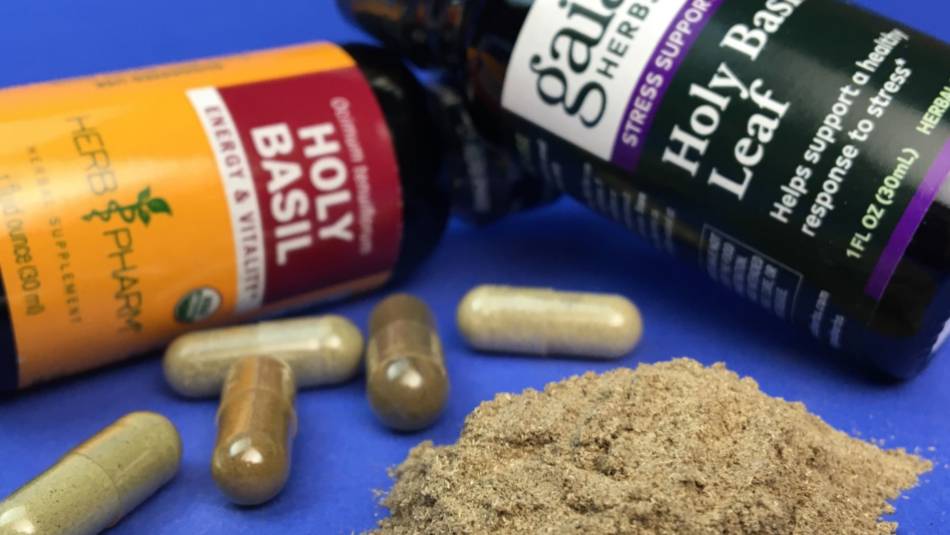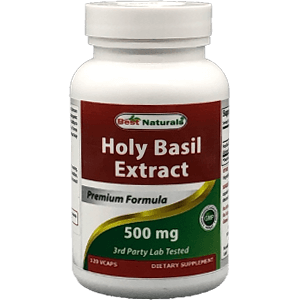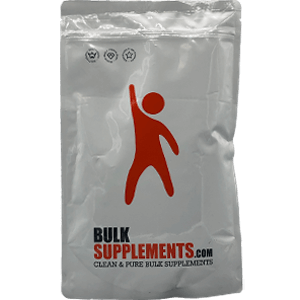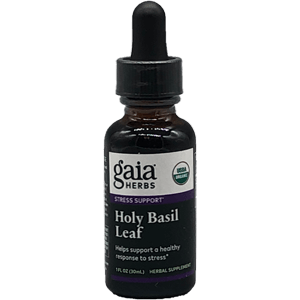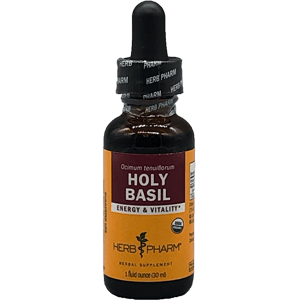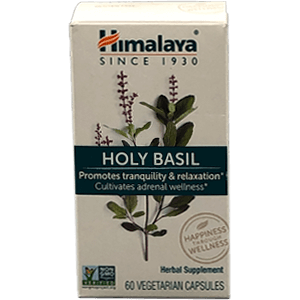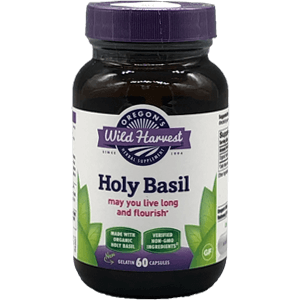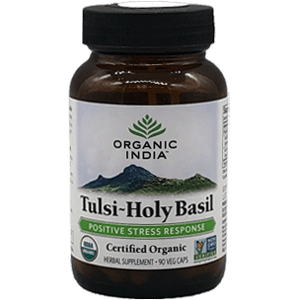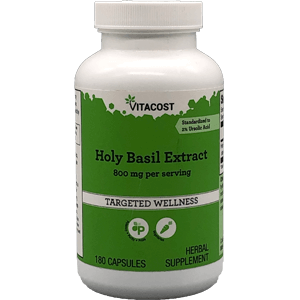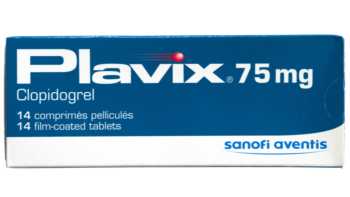Summary
-
What is holy basil?
Holy basil (Ocimum sanctum or Ocimum tenuiflorum) is a shrub in the basil family. Holy basil is also called by its Ayurvedic name, "tulsi." The leaves of holy basil contain compounds call triterpenes, including oleanolic and ursolic acid, that laboratory tests show to have anti-inflammatory, blood-sugar lowering and immune system effects. Holy basil leaves also contain eugenol, which may have analgesic effects. In supplements, holy basil is typically sold as a leaf powder (whole, dry crushed leaves) or as an extract (powder or liquid) (see What It Is).
-
What does holy basil do?
Preliminary clinical studies suggest holy basil may reduce symptoms of stress and anxiety and may modestly lower blood sugar levels in people with type 2 diabetes. However, the chemical make-up of holy basil extracts and powders used in some of these studies was not well defined, and more research is needed to confirm these findings (see What It Does).
-
What did CL's tests of holy basil find?
Most of the holy basil supplements ConsumerLab tested failed to contain even the minimum amount of total triterpenes expected or claimed on the label. Amounts of triterpenes in holy basil supplements varied widely — from as little as 0.43 mg to 34.8. mg per suggested serving, and only 3 of the 8 products tested contained their expected amounts. In addition, one product was found to be contaminated with lead (see What CL Found).

Which is the best holy basil supplement?
Among the products that passed all tests and were Approved, ConsumerLab selected one that provided the best quality and value as its Top Pick for Holy Basil.-
Safety and side effects of holy basil:
Holy basil may cause nausea or diarrhea. Due to its potential blood sugar lowering effect, it should be used with caution in people with hypoglycemia and those taking blood sugar lowering medications. Women who are pregnant or breastfeeding should not take holy basil (see Concerns and Cautions).
Products tested in 2020
+— 25 sources
In addition the results of its expert testing, ConsumerLab uses only high-quality, evidence based, information sources. These sources include peer-reviewed studies and information from agencies such as the FDA and USDA, and the National Academy of Medicine. On evolving topics, studies from pre-print journals may be sourced. All of our content is reviewed by medical doctors and doctoral-level experts in pharmacology, toxicology, and chemistry. We continually update and medically review our information to keep our content trustworthy, accurate, and reliable. The following sources are referenced in this article:
- Cohen, J Ayurveda Integr Med 2014
- Jamshidi, Evid Based Complement Alternat Med 2017
- Khanna, J Ethnopharmacol 2003
- Lee, EXCLI J 2016
- Pattanayak, Pharmacogn Rev 2010
- Prakash, Indian J Physiol Pharmacol 2005
- Sarkar Ind, J Physiol Pharmae 1989
- Singh, Indian J Exp Biol 2005
- Agrawal, Int J Clin Pharmacol Ther 1996
- Bhattacharyya, Nepal Med Coll J 2008
- Godhwani, J Ethnopharmacol 1987
- Mondal, J Ethnopharmacol 2011
- Sampath, Indian J Physiol Pharmacol 2015
- Saxena, Evid Based Complement Alternat Med 2012
- Somasunaram, Int J Life Sci Pharma Res 2012
- Silva, Molecules 2008
- Barkin, Oral Surg Oral Med Oral Pathol 1984
- Chattopadhy, Ind J Pharmacol 1992
- Eisen, J Toxicol Clin Toxicol 2004
- Hartnoll, Archives of Disease in Childhood 1993
- Khanna, Indian J Exp Biol 1986
- Panda, Pharmacol Res 1998
- Singh, J Ethnopharmacol 2001
- Tammannavar, BMJ Case Rep 2013
- Thompson, Toxicol Appl Pharmacol 1998
You must be a member to get the full test results along with ConsumerLab.com's recommendations and quality ratings for popular holy basil (or "tulsi") supplements, including leaf powders, and powder and liquid extract. You will get results for eight holy basil supplements selected for testing by ConsumerLab.
In this comprehensive review of holy basil supplements, you'll learn:
 Which holy basil supplements failed our tests and which ones passed
Which holy basil supplements failed our tests and which ones passed  Amounts of potentially beneficial holy basil compounds (total triterpenes, oleanolic acid and ursolic acid) found in products, which varied widely
Amounts of potentially beneficial holy basil compounds (total triterpenes, oleanolic acid and ursolic acid) found in products, which varied widely  CL's Top Pick among products based on amounts of holy basil compounds found, dose, quality, and price
CL's Top Pick among products based on amounts of holy basil compounds found, dose, quality, and price
 The health benefits of holy basil supplements, and evidence for and against holy basil for reducing stress and anxiety, lowering blood sugar and for immune system health
The health benefits of holy basil supplements, and evidence for and against holy basil for reducing stress and anxiety, lowering blood sugar and for immune system health How to take and store holy basil supplements
How to take and store holy basil supplements Holy basil side effects, safety and other potential concerns
Holy basil side effects, safety and other potential concerns
As a ConsumerLab.com member, you may print a copy of this report for your personal use.
You can access a special print version by clicking the "Print" icon in the upper right corner of this report.
You can then use your web browser's print functions to print the whole report or just selected pages.
You may also email or post a link to this report using the web address above.
Non-members using the link will see a free summary and can join to view the full report.
Other means of copying or distributing this report, in part or full, are not permitted.
If you are sight-impaired and your computer is having trouble converting the text in this report to speech,
contact us for assistance at Membership@ConsumerLab.com or by
phone at 914-722-9149.

